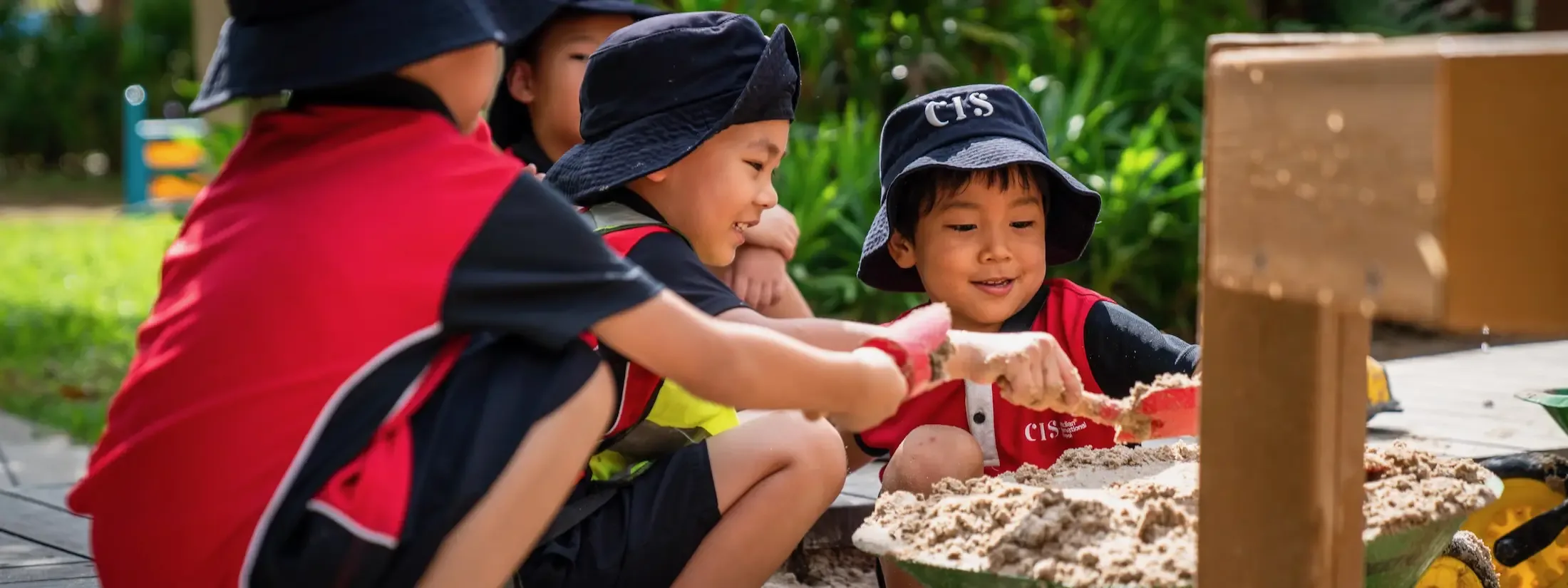Play-based learning in early childhood education is widely recognised to cultivate in young learners the foundational skills needed to succeed in further stages of learning and inquiry. Learning through play for our youngest students happens through engaging, meaningful and socially interactive experiences with their peers and with the world at large. Research has proven that learning through play not only enhances academic outcomes, but is also crucial to a child’s socioemotional development and wellbeing. For example, research shows that by age 10, children who engage in play-based learning excel in creativity, intelligence, oral expression, and work habits.
Play-based learning at the Canadian International School
As an International Baccalaureate school, CIS students in pre-kindergarten to grade 6 learn according to the Primary Years Programme framework. As such, our learning community values the early years as a time in which play is the primary driver for inquiry.
At the heart of play-based learning is the belief that each child is equipped with creativity, intuition and the potential to excel. Children are not just passive bystanders but an integral part to their own learning and progress. Our play-based approach at the Canadian International School in Singapore is intentionally designed to ignite curiosity, foster creativity, and lay the foundations for lifelong learning.
Our passionate educators provide opportunities for learning as they seamlessly blend child-initiated play with adult-initiated experiential learning opportunities involving interactive, hands-on activities with the world around them. In our beautiful, green Outdoor Discovery Centre, kindergarteners experiment with nature, solve real-world problems and learn about sustainability and environmental stewardship. Immersed in the natural environment, our students engage their senses as they navigate the terrain and encounter diverse flora and fauna, sand, water and mud. By engaging in these natural surroundings, our students foster imaginative and creative thinking and enhance their abilities to calculate, measure, invent, estimate, analyse, hypothesise, and test theories.
What are the benefits of play based learning?
When children are given the opportunity to learn through their own initiative and exploration, both academic and social skills are cultivated. Whether students are learning about units of measurements in our mud kitchen or expressing themselves in our art and music garden, research shows that children learn best when they are genuinely interested and nothing captures the imagination as much as free-flow play in a holistic environment.
Academically, learning through play in the early childhood years is significantly correlated with student success in pre-reading, language and writing, as well as higher mathematical outcomes. More obviously, the social benefits of playful learning are numerous. These include social competence and emotion regulation, communication and teamwork skills, self-confidence and independence, and overall social emotional wellbeing. Play involves choice, promotes agency and provides opportunities to inquire into important concepts and personal interests. Additionally, physical play activities like running, cycling and climbing aid a child in building fine motor skills, spatial awareness and general physical health and development.
Learn more about kindergarten at CIS
At the Canadian International School in Singapore, we recognise the crucial role of the early years in shaping future success. Our high-quality, inquiry and play-based kindergarten programme provides our students with a nature-infused curriculum involving science experiments in the garden to art projects inspired by the outdoors. Visit our website to learn more or book a tour for a visit of our kindergarten wing and Outdoor Discovery Centre to see how our students learn in action.

 Contact us
Contact us